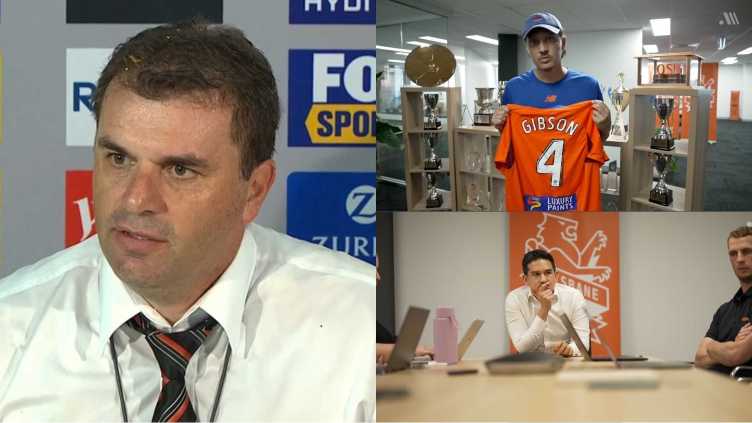This week’s episode of A-Leagues All Access titled Coming Home takes you behind the scenes of Brisbane Roar’s new era under CEO Kaz Patafta and COO Zac Anderson. Watch the full episode this Thursday night on aleagues.com.au or KEEPUP YouTube.
“Every club goes through phases,” says Brisbane Roar CEO Kaz Patafta. “Big clubs, small clubs.
“There’s so many clubs around the world that have different pathways.
“One thing about Brisbane Roar is … when you think of the club, when you look at the badge, it’s one of the biggest clubs in this country.
“Not only from what the club has achieved, the type of players and people and personnel that have represented the club, but also the people of Queensland, the people of Brisbane are genuinely, truly passionate about this club.”
It’s difficult to argue.
UNITE ROUND TICKETS ON SALE NOW: Get your tickets for the ultimate away day here

Brisbane Roar boasts success in both the A-League Men (3x Champions, 2x Premiers) and A-League Women (2x Champions, 3x Premiers) and a roll call of greats, arguably as impressive as any other club in Australia.
They unearthed Socceroos legends Robbie Kruse and Matt McKay. They brought Thomas Broich to Australia. They were home to Matildas stars Katrina Gorry, Clare Polkinghorne, Hayley Raso, Tameka Yallop and Mackenzie Arnold on their journeys to becoming household names.
Perhaps most notably, they’re the club where Ange Postecoglou truly began his ascent to the peak of global football, honing a craft that is today winning admirers with Tottenham in the Premier League.
Watch A-Leagues All Access: Coming Home from this Thursday on aleagues.com.au or KEEPUP YouTube.
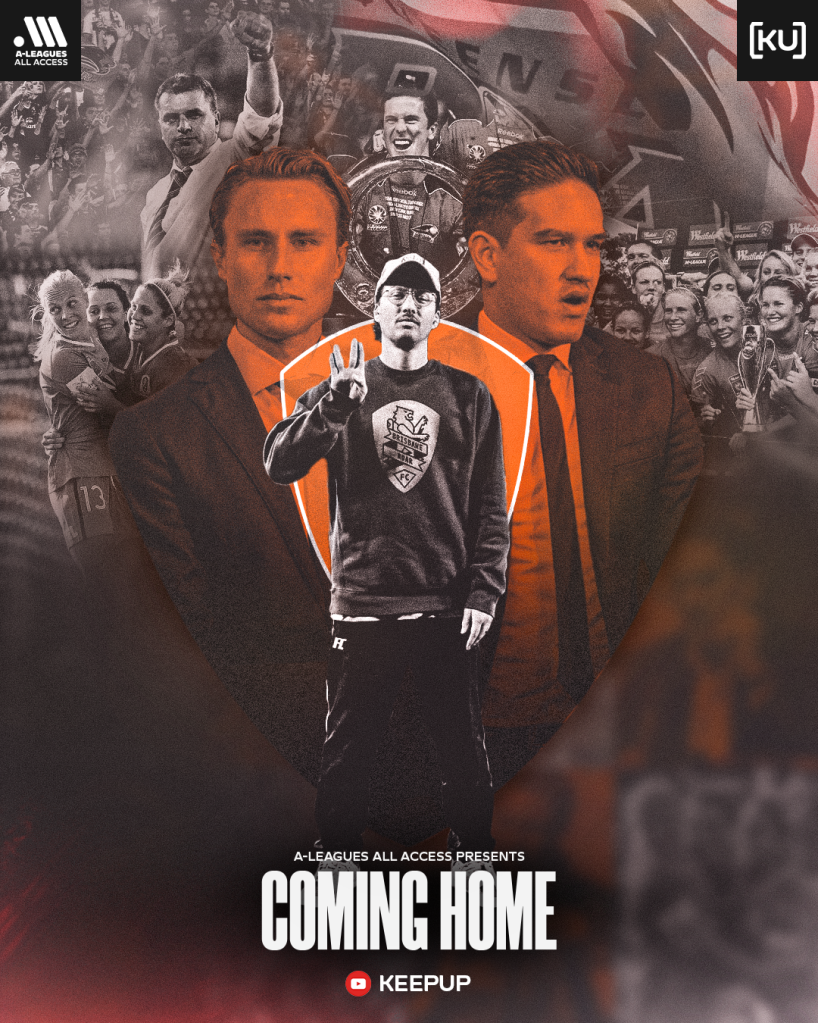
However, even Patafta admits he noticed something immediately when he and Anderson took the reins in July:
“I think a bit of (Brisbane Roar’s) DNA or a bit of its soul had been lost.
“I don’t think it’s necessarily for one particular reason, but I think that what we found, or what I found coming into the role was a bit of a disjointed or a disconnected club.
“You really look at it across the board; it could be a disconnect with a fan, it could be a disconnect with a member, it could be disconnect with the players.”
This week’s episode of A-Leagues All Access pulls back the curtain on a new era at the Roar, led by best mates Patafta and Anderson, who played against each other in the A-Leagues and forged a friendship over the past decade, which has launched a mission to restore the club to its past glories and give Brisbane and Queensland a football club they can connect with and be proud of.
Brisbane Roar host a double-header at Suncorp Stadium this Sunday! Click here to buy your tickets
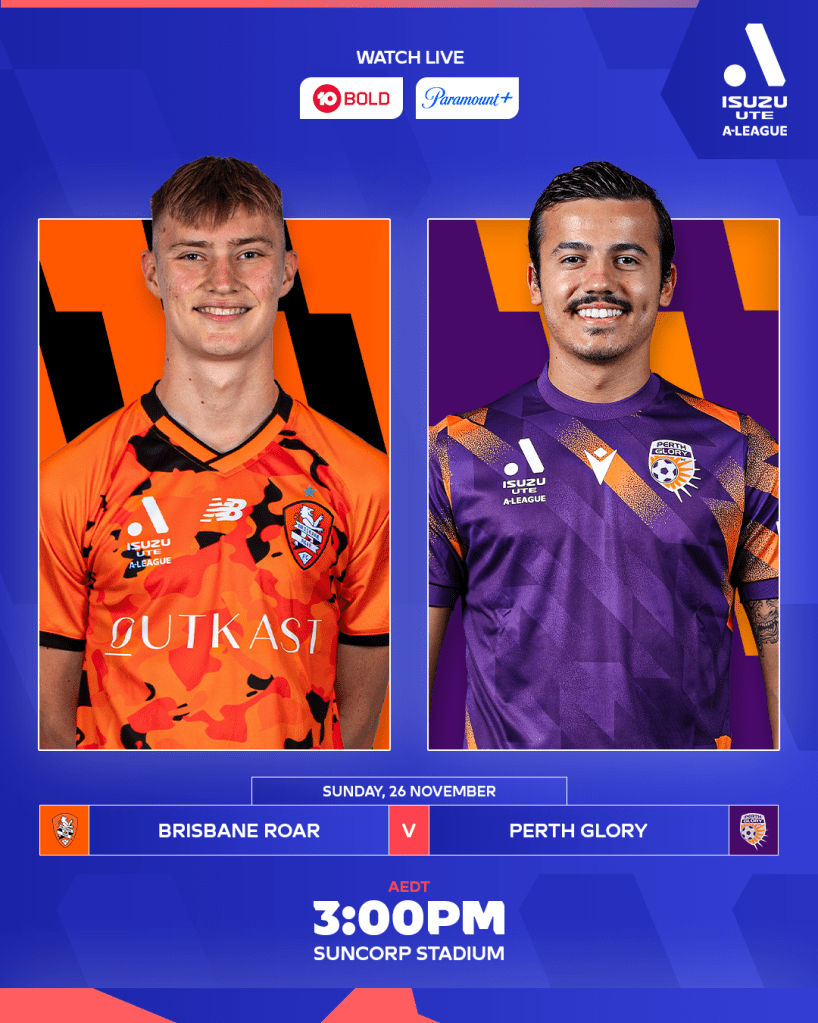
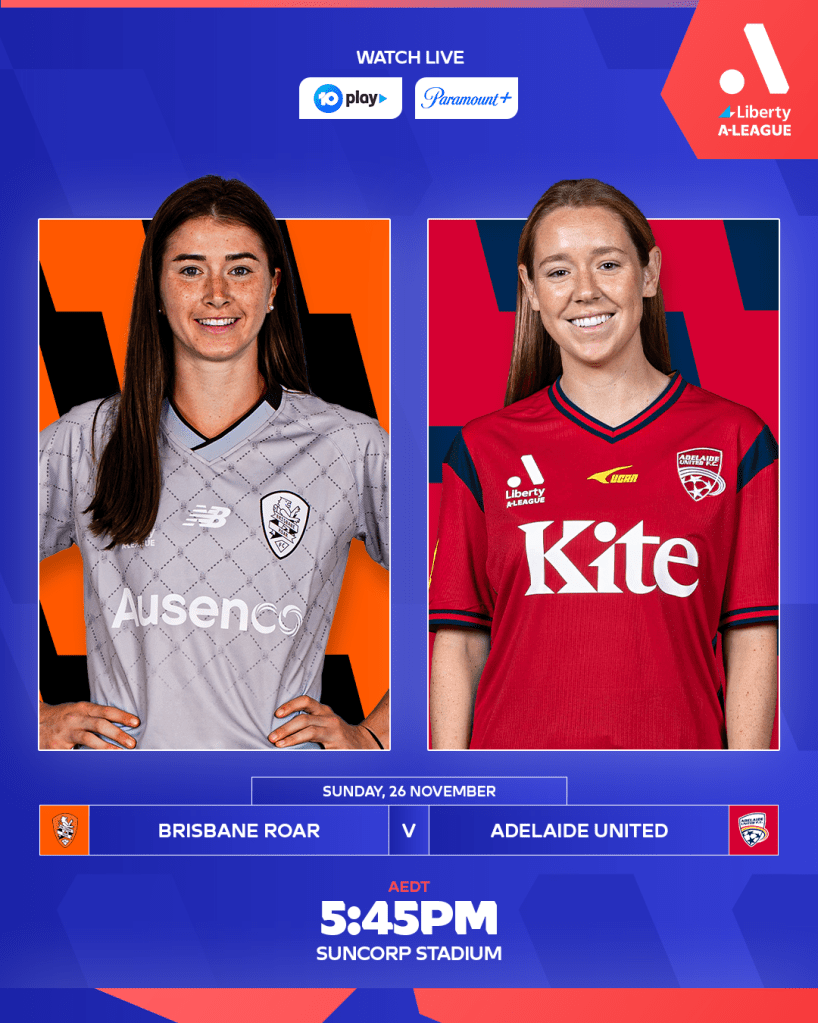
LETTER FROM NEW CLUB OWNER BILL FOLEY: My vision for Auckland and Northland in the A-Leagues
AUCKLAND ANNOUNCEMENT: Owner sets out Premier League ‘pathway’ in brilliant first press conference
“I said when I arrived that I wanted the people of Brisbane, when they think of soccer or football to think of Brisbane Roar,” Anderson explains.
“A lot of people when you think of Brisbane Roar, they go straight back to the era that was of Ange (Postecoglou), and that’s because we had 40 or 50,000 crazy Queenslanders in orange at Suncorp Stadium – that feeling that puts goosebumps on your skin.
“We want to bring that back to the people of Brisbane and to the state of Queensland.
“So, to get there, we’ve got to reconnect and to reconnect, we have to improve the brand. We have to make people believe and want to be a part of something bigger.

“When we talk about memberships and why and how we can improve our membership base. It’s not about the scheduling. It’s not about our marquee players. It’s not about winning. It’s not about the next No. 9 we’re going to sign.
“It’s about being a part of a family. It’s about part of the brand is about being a part of something bigger.
He continued: “For us, our messaging with our women’s program post World Cup has been come and support women’s sport, come support the growth of the of the female game. It’s not necessarily about us, it’s not necessarily about any individual player. Albeit we’ve got some incredible talent.
“It’s about being a part of something bigger and I think that’s not anything new.
“We’re not reinventing the wheel; we’re looking sideways, we’re looking at what the best clubs around the world are doing.
“That is, every year memberships are getting sold out at the biggest clubs around the world, because people want to be a part of something special, they want to be part of a bigger purpose.
“They don’t want to miss out on that feeling of being a part of the journey.
“And so, for Kaz and I it’s about bringing people together, bringing the best people together, and going on a journey, going through the ups, going through the downs but being honest, being transparent, not hiding away, owning mistakes, being accountable, and creating a winning culture that people want to be a part of.”
This episode provides an insight into the culture the club is now fostering.
From the returns of icons like Kruse and Mitch Nichols, the arrivals of coaches Ross Aloisi and Alex Smith, to the appointment of inaugural club captain Chad Gibson and his partner as brand directors.
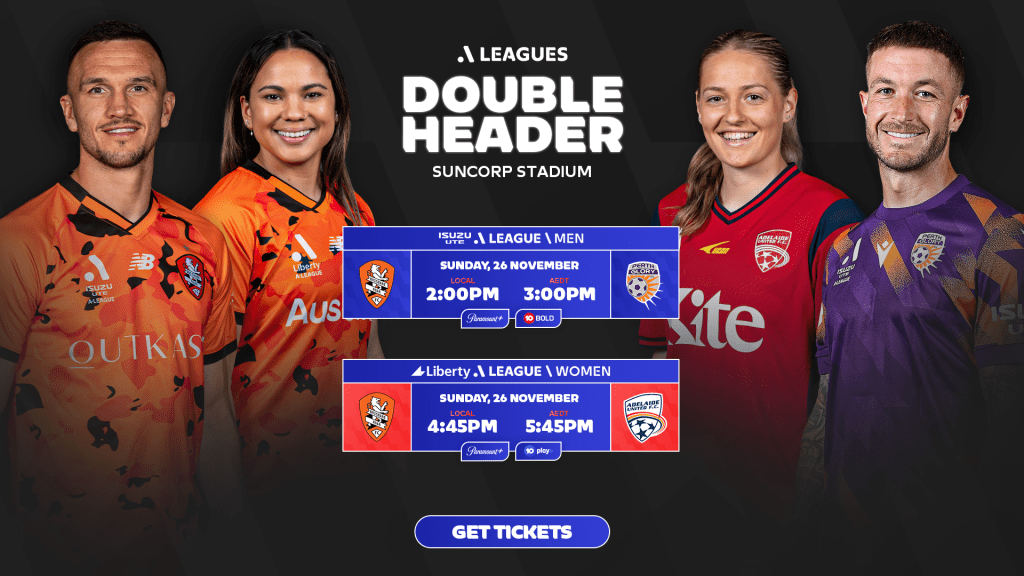
Gibson, who has forged a career as a creative with clients including Nike and the NRL’s Dolphins, was there on day one: “I don’t think I had a day off for nine months in that first season between training and media commitments,” he says. “I still remember that first day and I’ll never forget walking out in front of 23 to 24,000 people at Suncorp – it will be a memory that will always stay with me.
“It’s something that I told the players when I came here. To play in the league, you’re part of a really exclusive group of men to play the game – and the same with the women’s team as well.
“To put on a Brisbane Roar Jersey makes it an even more exclusive club.
“… That time was special but personally I feel we were part of (the) building blocks. For me, the club doesn’t start ‘til the Ange and Matt McKay winning era. For me, that’s the start of Brisbane Roar.”

Indeed, the Ange Postecoglou era (2009-2012) remains the most successful in Roar history, jam-packed with moments and memories of a raucous Suncorp Stadium that have somewhat faded into the distance in recent years as the club have struggled for results.
“Ange is the best example of what Australian clubs can do for coaches,” Anderson says.
“For us, we have an opportunity to do that for players, coaches, administrators. As a business, we want to be part of that journey for everyone.
“I think that we can provide a platform, an opportunity to young aspiring coaches like Ange. He’ll be the first person to admit that when he got the opportunity – and probably going through that first season, had a lot of doubts at that moment in time, finishing second last I believe that first year.
“That’s not really spoken about, but the inner drive that he had, the support that he had from hierarchy, the belief that the organisation had in him that at that time with really no significant runs on the board, to believe in his vision, to back him, and then just see the fruits of what the years were to come post that season.
“So there’s a message in that for us – it’s about really supporting our own. We want to see Queenslanders getting an opportunity. We want to see more Queensland coaches coming through, more Queensland administrators coming through, more Queensland players coming through.
“That doesn’t mean 11 players coming through every week that are only Queenslanders, but for us, it’s about giving opportunity.
“I think that we always as a club and as a league always look overseas for what’s better, but I think that we have a lot of talent on our shores that deserve an opportunity.
“There’s a lot of really ambitious hungry individuals that want to be given the chance and Ange is someone that has been an incredible ambassador for someone that’s really believed in his own DNA of what he stands for, the value sets that he wants his teams to play, week in week out, and he’s never moved away from that value set.
“Wherever he’s gone in the world, everyone’s seen that positive, dominant Ange that that we have come to love and we are so proud as an organization to have been a part of his journey.”
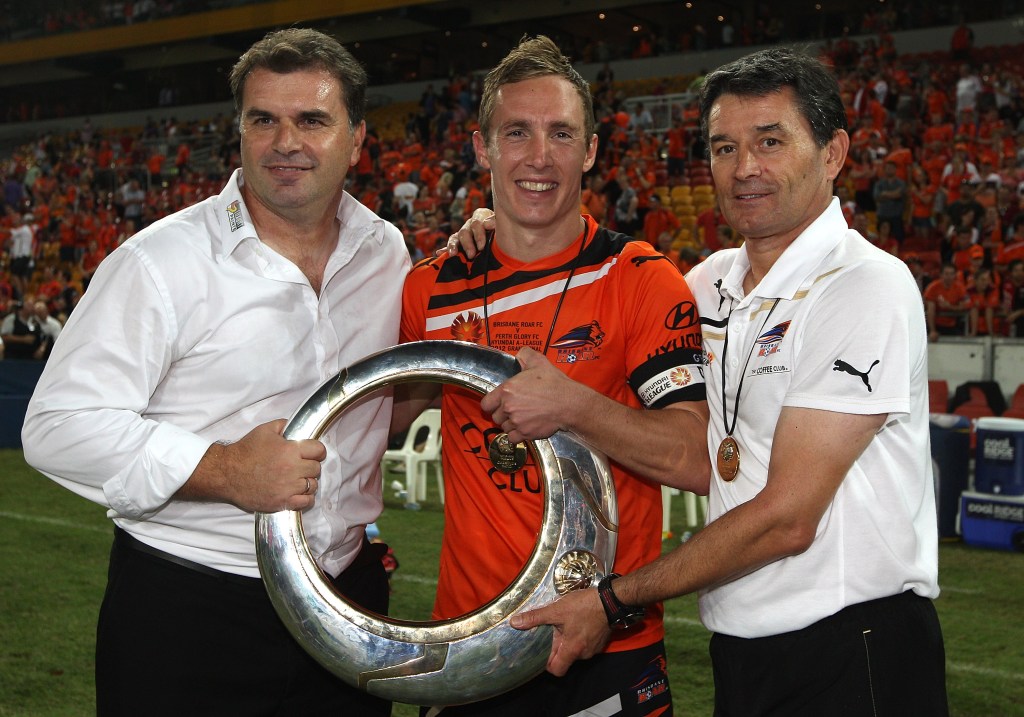
Patafta adds: “I think Ange was ahead of his time. Ange was saying all of these things 10, 12 years ago. So there’s no secret, there’s nothing different, but it’s hard work.
“It’s about building a bigger vision, but you need to ensure that every element of your club is working towards a greater purpose. That’s what people get behind.
“That’s what we believe our fans want. That’s what the members will believe in.
“But it’s also you need to be able to present or play a certain type of football that’s exciting, that’s entertaining, that’s end to end. I think that with Ross (Aloisi), at the moment and the way that the players are also buying into this new vision for the club, I think it’s starting to reflect on field.
“Once you get those key elements right and people on and off the field around the club buy into that vision, I think you’ll start to see the support and the people hungry for the club.”
Indeed, there has already been an uptick on the pitch since the change in management.
Aloisi has guided the men’s side to an Australia Cup Final; he’s given opportunities to local talent like 15-year-old Quinn MacNicoll and 18-year-old Thomas Waddingham, who has emerged as one of the brightest young strikers in the country.
Brisbane are currently sixth after four rounds.
Meanwhile, their women’s side has been buoyed by the return of Tameka Yallop after a historic World Cup campaign with the Matildas and a recent change in coach showed they aren’t afraid to make big calls.
One thing that has aligned seamlessly is the management with the coach they inherited, Ross Aloisi. Anderson speaks with brutal honestly about the first few weeks in charge.
Anderson admits: “I wasn’t sure coming in day one if (Ross Aloisi) would buy into… what we wanted to achieve.
“Maybe in hindsight that was a silly thought, when you think of what he did at Adelaide, his time in Yokohama in Japan. But it was mainly because of maybe the promises that he was provided pre Kaz and I coming in that the training facility would be this and your budget would be that.
“The reality was that it wasn’t there.
“For the first month, I think that we were quite distant.
“That was only because Kaz and I really had to focus on getting the business right and getting an understanding of where finance sat, getting an understanding of where cash flow was at, getting visibility on where we were going over the next six to 12 months, so that we could then sit down and be truly honest with the hierarchy within our football department to give a clearer picture of: ‘this is where we are and this is where we need to go and do you buy into our vision and our DNA of what we want to achieve’?
“Since we had those strong and difficult conversations, Ross has been absolutely immense. He’s bought in every day to what Kaz and I have have proposed.”
Another important element has been Roar’s return to Suncorp Stadum.
This week, they’ll play their first men’s and women’s double-header at the ground in over four years; an important milestone on the road to re-energising local support.
“I think it’s the most crucial factor of our vision moving forward,” Patafta says.
“Our club is Brisbane Roar. We really need to ensure that we understand our identity and what do we stand for and we’re here for the people of Brisbane.
Our fans are from Brisbane and we are part of Brisbane, we want to be and we are a big part of this city… For us, coming home, representing Brisbane, representing this great city is so crucial to the foundations that we’re building.
So what is the end game for this ambitious project?
“It’ll never be done, we’ll never be satisfied,” Gibson says.
“Zac, Kaz, we’re constantly … it’ll be 11pm at night and we’re still texting and calling and that’s just normal, but we’ll never be done.
“There’s always something to be done. There’s always this boundary to be pushed.
“How do we keep evolving… it’s something that’s a work in progress. But for me, we’ll never be done because it’s an opportunity to be able to be in a position where we can create change and to create change our league and our game has people say have has a long way to go but I feel it’s always just there.
“How do we just flick that switch? So for me the end game that you don’t never be done, but I just want to be part of the solution, not part of the problem.”
BUY A-LEAGUE WOMEN TICKETS HERE

